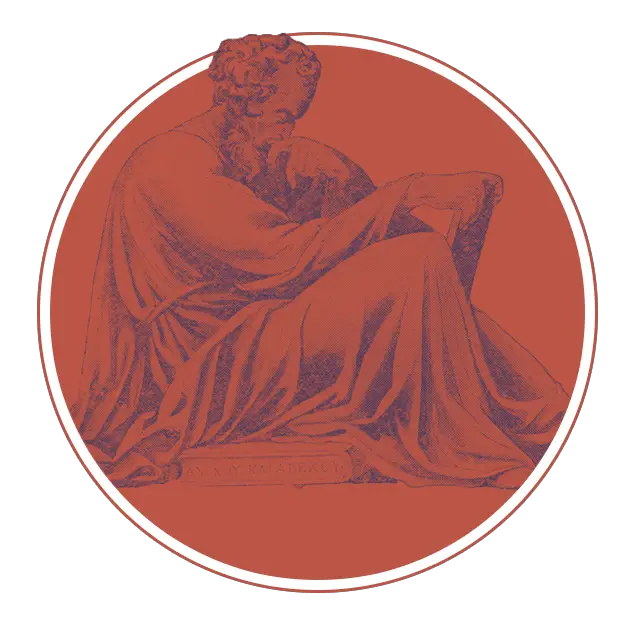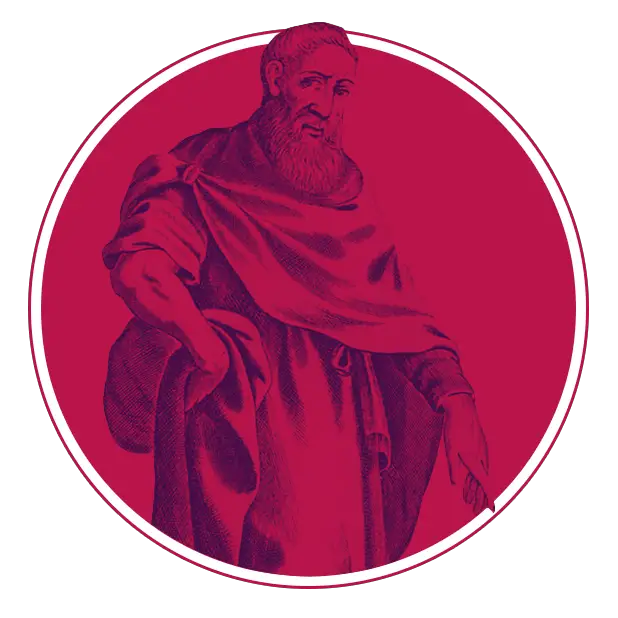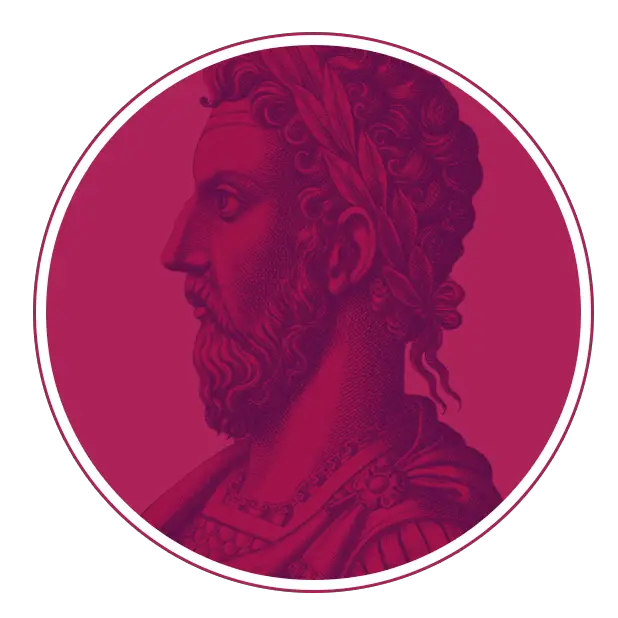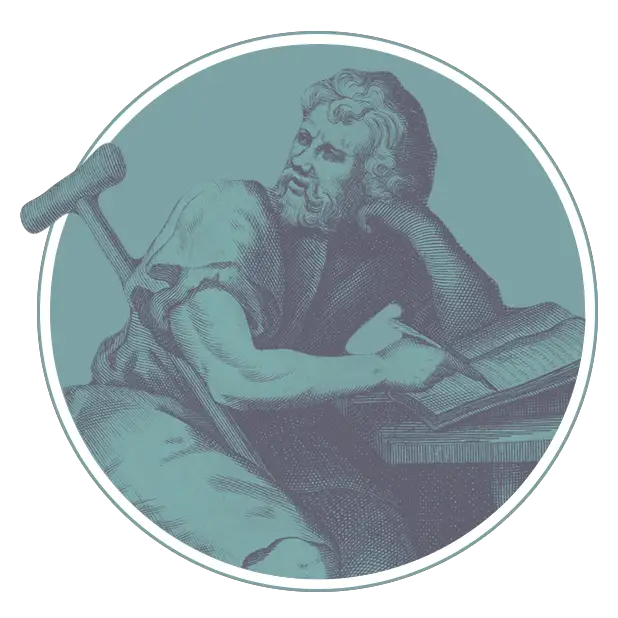So what is stoicism? Stoicism is a practical philosophy based on a series of Ancient Ideas and Practices from the Greco-Roman World that have survived, carried through, and found remarkable purchase in the Modern World.
What does stoicism mean? The stoic philosophy definition from Wikipedia says stoicism is a “a philosophy of personal ethics informed by its system of logic and its views on the natural world.” The most important teaching of Stoicism which has resonated across a millennia is the importance of perception and control, that when faced with adversity and challenge an individual needs to understand what they can control and what they cannot control.
This will allow the Stoic to take effective action not coloured by wishful fantasy and allow them to plan and react properly. With this mindset, Stoic Philosophy both protects one against a loss of respect and confidence in the face of failure and a defensive wall against arrogance in the face of success and prosperity.
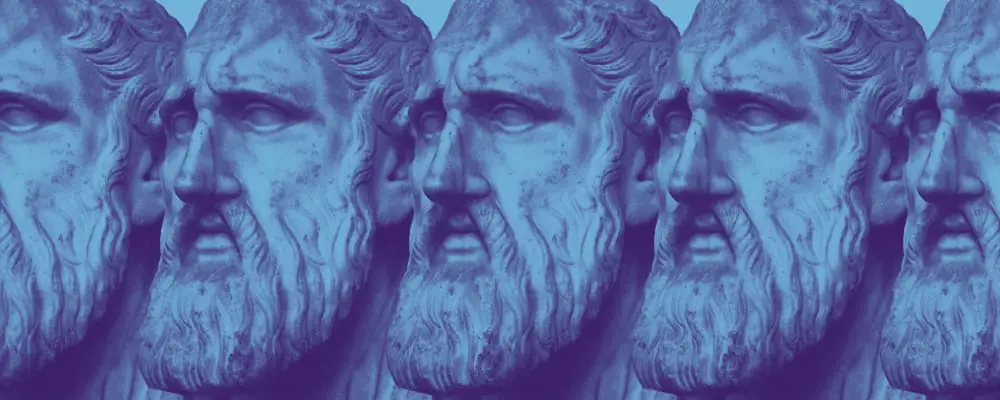
The philosophy of Stoicism was founded by Zeno of Citium in Athens sometime in the early 3rd Century BCE. He developed his ideals by studying the work of cynics like Diogenes and was also heavily influenced by the works of Socrates, Plato and Aristotle while at the same time striking out with his own ideas.
Zeno believed in being virtuous and that virtue was a matter of submitting to the will of God or more accurately to the will of Nature, as Zeno did not differentiate between the two in his teachings.
Another major teaching was that of Apatheia, which specifically referred to the absence of passion. By passion Zeno was specifically referring to uncontrolled emotion and physical desire, Zeno felt that this was necessary to obtain wisdom and the ability to utilize it.

Stoicism first emerged in Athens in Ancient Greece during the chaos that followed the early death of Alexander the Great. It is very likely that the philosophy appealed to those searching for some measure of peace and security during a period when everything seemed to be falling apart.
Originally it was called Zenoism after its creator, but that name was discarded due to the worry that followers might start to view Zeno as perfectly wise and infallible when there is always more to learn, understand and refine. The name Stoicism itself refers to the Stoa Poikile or “Painted Porch” which was a decorated colonnade in Athens where Zeno and his followers frequently met to discuss their emerging philosophy.
Stoicism would eventually become one of the most widely adopted philosophy by the educated elite in the Hellenic Greek World. Stoicism was later adopted and further developed by a great many Roman Philosophers and leaders such as Seneca, Marcus Aurelius and Cicero to name a few.
While there have been many stoic philosophers over the years, we can trace its early writing back to a few prominent figures.

Born in the year 121 and Roman Emperor from 161 to 180, Marcus Aurelius was the last of the Five Good Emperors, and early stoic, and oversaw one of the last truly stable periods of the Roman Empire.
Like many of the other “Good Emperors,” Aurelius was groomed for imperial leadership by his predecessor Antoninus Pius. It was speculated that Hadrian had planned to make Marcus (who was far too young at the time) his successor, although he eventually settled on Pius instead.
Marcus Aurelius was made Co-Emperor alongside Lucius Aurelius Verus, and the two would share power for eight years before Verus fell ill and died, leaving Aurelius as sole Emperor for an additional eight years before Aurelius raised his son Commodus to co-Emperor.
Aurelius’ reputation as an Emperor was that of a capable ruler and level headed leader. His reign was to be a dramatic one that saw Aurelius overseeing two wars and the Antonine Plague which raged for 15 years of his reign. In addition to being Emperor he was also a scholar and philosopher who did a great deal of writing during his reign.
His personal writing would later be compiled and published as his “Meditations”. It is widely believed that the Meditations are as candid and honest an account of an Emperors thoughts as possible as it is unlikely that Aurelius ever planned to publish them or make them widely known.
His thoughts, as laid out in Meditations, are a cornerstone of Stoic Philosophy and an important piece of writing on good governance. Emperor Marcus Aurelius died at the age of 58 in April of 180 CE of unknown causes, though it is believed that he succumbed to the plague, while in his military tent.
His biological son Commodus was designated as his heir which is the most notable stain on Aurelius record of wise rule. Commodus was a megalomaniacal force as Emperor and his assassination led to the disastrous Year of Five Emperors. It is for this reason that many scholars indicate Aurelius death as the beginning of the end for the Roman Empire as it would never again reach such heights as it had under the 5 Good Emperors.
While one could read Aurelius’ elevation of his son as a disastrously poor decision to create a family dynasty one could also view it as an example of his stoicism in action. None of the other 5 Good Emperors had male heirs who survived to adulthood thus placing Aurelius in an impossible position.
Previous Emperors with male children had designated their sons as their heirs so Commodus likely expected to be named as his fathers’ successor and even had Aurelius denied him the position, he would have had enough sway or been deemed useful enough for others to rally behind him and challenge whomever else Aurelius designated.
The only other option would have been to have his own son assassinated and there was no way for Aurelius to know that his son would be such a poor Emperor as to warrant such extreme action. Thus Aurelius controlled what he could, he taught his son as best he was able and had Commodus rule alongside him from 177 CE until his death 3 years later.
Despite the controversy surrounding the elevation of Commodus, Aurelius is still considered one of the greatest Emperors of Rome and such a finely learned figure that his biographers referred to him as “The Philosopher” with his writings and ideals being lauded for centuries after his death.

Lucius Anneaus Seneca The Younger, usually referred to simply as Seneca was a philosopher, statesman, dramatist and satirist who served as a senator under Emperors Caligula, Claudius and Nero.
He was sentenced to death by Caligula but shortly after The Emperors death his successor Claudius commuted that sentence to merely exile. He would later return to Rome as a Tutor and then advisor to Emperor Nero. Seneca was largely concerned with ethics and felt that Stoicism was an optimal guiding framework for upper class roman political life.
He believed that Philosophy was the balm for the wounds of life and that destructive passions such as anger and grief could be moderated by reason. He also felt that it was important to confront ones own mortality as to overcome the fear of death to both be able to life free of its shadow and meet it with dignity when it came. Seneca put this into practice when he was ordered to commit suicide by Emperor Nero after he was accused of involvement in a conspiracy to assassinate the Emperor.

Epictetus was born a slave in Phrygia before later relocating to Rome to teach philosophy before he was eventually exiled to Nicopolis when Emperor Domitian exiled all philosophers from the City of Rome.
In Nicopolis he established a philosophy school and was allegedly admired by Emperor Hadrian who may have listened to his speeches. While a slave he studied philosophy under Musonius Rufus, another famous Stoic, and used that education to increase his social status.
It is also possible that he was crippled by his master to prevent his escape, but it is equally likely that he was crippled by illness or born with the difficulty. Unfortunately for the modern student of Stoicism, Epictetus is not known to have any writings of his own and what we have was transcribed from his discourses by his pupil Arrian, who claims that they are unedited and unchanged, these are known as the “Discourses”.
In regards to his ideas, Epictetus is heavily concerned with Desire, Choice and Assent. In Discourses, he purports that although we are not responsible for the ideas that present themselves to our consciousness, we are responsible for the way in which we use them. In addition, he states the importance of viewing the whole and that we are all parts of a great system. Consequently all things (even evils), are the will of providence, be that God or Nature, and are thus good from the view of the whole.

Diogenes of Babylon, as he is known to differentiate himself from the many other philosophical Diogenes’ in Ancient Greece, was the head of the Stoic School in Athens during the 2nd Century BCE. While he is considered extremely influential in Stoic Thought going forward, none of his writings have survived into modernity and what we know about his philosophy only survives in quotations by other writers. Thankfully these quotations are extensive which leads to the conclusion that Diogenes was well regarded.
Other than these quotations, his most notable claim to fame is in “introducing” stoic philosophy to Rome through his temperate and sober mode of speaking. Of his most notable fans was the famous Cicero who called him a “Great and Important Stoic”.
Some of his most notable surviving philosophy is about Music—Diogenes believed that music could produce harmony and proportion in the soul and that music would calm inflamed passions and emotions. He felt that music was nourishment for the mind and soul, contributing to a healthy mind and a good life like proper diet and exercise contribute to a healthy body.
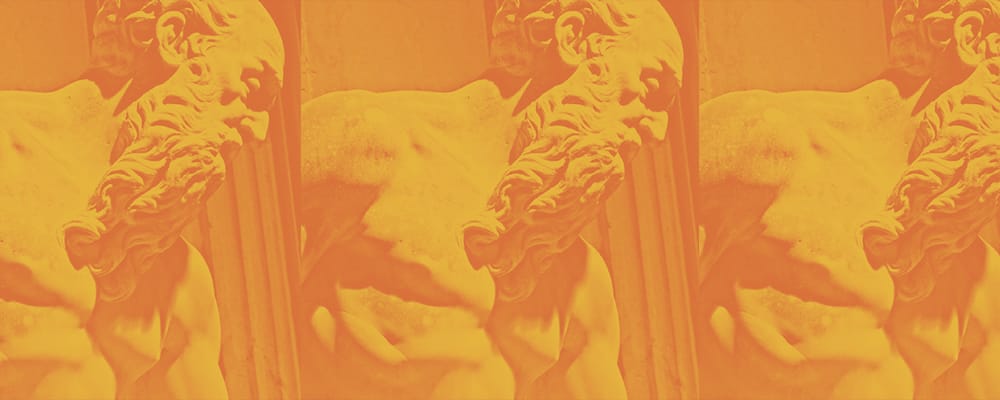
Musonius Rufus was a famed Roman Stoic in the 1st Century CE who taught Stoic Philosophy in Rome. He became associated with the Stoic Opposition to Nero and was exiled from the city in 65 CE due to his teaching of Stoicism and perceived association with a conspiracy to assassinate the Emperor, the same one that prompted Seneca’s required suicide.
He returned to the city following the death of Nero where he taught his most famous pupil, Epictetus. He would be exiled again under the rule of Emperor Vespasian, who banished all the Philosophers from the city in 71 CE, but Musonius was allowed to remain for another few years due to the esteem in which he was held but was eventually forced into exile by around 75 CE.
He returned to the city after Vespasians’ death after which details about Rufus’ get difficult to uncover, leaving his actual date of death unknown. It is unknown whether Rufus wrote anything intended for publication and while there are a great many transcribed speeches credited to him, it is uncertain how many of them are authentic. The most notable collections of his ideas were published by under the overused title of Discourses by a man named Lucius and in lengthy transcriptions by Stobaeus, a famed transcriber of extracts from other writers.
Overall his philosophy is very close to that of Epictetus, unsurprising given their connection, however there are a few notable ideas which Rufus presents that are unique to him. He was largely concerned with practical philosophy and ethics and tended not to write much about Logic or Physics, though he did not consider those important. He also practiced an ascetic lifestyle to live as close to “nature” as possible.
In one of his most famous statements, Rufus argued that men and women had identical capacities for understanding virtue and that women should also receive education in philosophy.
When we look at the question "What is stoicism?", one of the best ways to break it down is into the Four Virtues. The Four Virtues are what many Stoics use to guide themselves when attempting to address difficult questions and concerns that arise. These Stoic ethics provide a concrete framework of how to put philosophy into action rather than simply discussing it in a closed off setting.

Also called phronesis or prudence, Stoicism holds that the virtue of Wisdom is the ability to put the teachings of abstract philosophy into practice. Hence the essence of the virtue of Wisdom is the knowledge of what is virtue, what is good and what is bad, what behaviour is right, what behavior is dangerous or harmful and what behaviour is indifferent. It undoubtedly also refers to the great understanding about what is within an individuals control and what is not as this is wisdom a stoic should not be without.

Stoic Courage is referred to as the courage to face misfortune and not fall into depression or despair, the courage to stick to your principles when discarding them would warrant a reward and the courage to speak your mind and insist on the truth.

Temperance, Moderation and Self-Control are all interchangeable for the Stoics. The Stoic believes that excess desire is leads to discontentment and dissatisfaction and that the impulse is largely self defeating, as the more you take the more you want and the more you want the more you won’t be able to have. The core of understanding this is knowing that true abundance comes from having what is essential rather than what is simply desired.

As Stoicism in the Greek and Roman Period was closely linked to political life, many classical Stoics such as Marcus Aurelius and Seneca held justice as the most important virtue and that it was the source of all other virtues. In the modern world Justice can more properly refer to our duty to our fellow beings, that we need to contribute to the common good and that people only exist for the sake of other people.

Now that we've gone over the four virtues, it might be easier to understand what is stoic philosophy. Stoicism is a practical philosophy that can have tangible benefits on the way one lives ones life by following its ideals. It can help you connect with the world around you by insisting that you regard the universe around you as one living being and keep in mind how this one living thing flows and connects in various ways.
It is an actively useful and helpful philosophy which, when put into practice, produces tangible benefits for the adherent. Stoicism encourages living in the moment rather than dwelling on the past or focusing too much on the future. Seneca states that true happiness is to be found in the present and being satisfied with what we have and what we are experiencing in the immediate moment.
Another major benefit is self actualization, improving the quality of one’s life by improving the quality of ones thoughts and overcoming a dependence on the opinions of others by understanding that ones opinion of oneself is paramount and that another’s opinion of you is irrelevant if your opinion of yourself is what you view as correct. However, one should also not wallow in selfishness, Stoicism encourages that you build strong relationships with others and considers meaningful friendship to be of paramount value. Being only concerned with the needs of oneself disrupts harmony and pulls people apart leading to a weakening of the one living being that all existence is part of.
Another major tenant of Stoicism is to focus on the things one has control over rather than being overtly concerned with events and elements in our lives that come from outside and are beyond our control. It is not a statement encouraging inactivity or fatalism, rather that if we encounter an obstacle that is within our power to overcome, no matter now much effort it requires, our happiness depends on our overcoming it.
Stoicism can also be a contributor to positive mental health, modern psychotherapy makes extensive use of Stoic Philosophy, especially Cognitive Behavioral Theory which has its foundation in Rational Emotive Behaviour Theory, one of the original therapeutic treatments for depression. Meaningful action, understanding limitation, self control can all contribute to a positive mental state. Accepting negativity can help normalize it and reduce its intensity allowing it less control over a persons mentality.

What does stoicism mean when it comes to death or mortality? Dealing with a fear of death is also a popular topic among Stoic Philosophers both Ancient and Modern. It is generally believed among Stoics that one should accept the inevitability of death to overcome it. Massimo Picliucci’s research into and adoption of stoicism was partially prompted by turning 50 and thinking about his own mortality.
The ancient stoics did not consider death to be an evil in and of itself, if everything in the universe is rational, then death is rational and a fear of it is irrational. Similarly death often falls outside of the realm of an individuals control, we will most likely not be able to control when we die, or how we die, all we can control is how we think about and deal with the idea of death. With this mindset you can, as stated by Epictetus, escape the fear of death and not let it rule over your actions.
When it comes to answering the question "what is stoicism?", there are many modern book to start with, but the best foundation to get started learning about the philosophy of Stoicism is to begin with the classics, Marcus Aurelius Meditations, Seneca’s Letters and Arrian’s Discourses.
These three books provide many of the essential ideas and concepts of stoicism often in timeless and readable ways which shows why it is such an endearing philosophy.
If you would like to expand your knowledge, I've also created a much larger list of my favorite books on Stoicism.

If there is one book you should pick up, this is what I would recommend. Just be sure to get the proper translation (I recommend this Gregory Hays version) otherwise it might be a little bit harder to follow. This book is great because it's very easy to read, the passages are short, and it's a perfect companion on your journey to understand what is stoic philosophy.
Meditations is a serious of personal writings by Marcus Aurelius which consists of private notes to himself and contains a great deal of musings on Stoic Philosophy and other ideas. The work has no official title as it is unlike that Aurelius ever intended to have the writings published so “Meditations” is the name most ascribed to the collection.
The quotations within range from brief sentences to entire paragraphs speculating on various philosophical ideas. The central theme of Meditations involves developing a cosmic perspective by analyzing ones judgement of ones self and the judgement of others. Aurelius advocates for the importance of finding ones place in the universe and understanding that everything comes from nature and shall return to it in due time.
He advises that individuals avoid indulging in sensory “afflictions” which will free man from the pain and pleasure present in the material world, allowing for a greater focus on the mental one. His formula for success was for thriving not just in spite of challenge and adversity but because, using difficulty to better oneself.

Seneca’s Letters, also known as Letters from a Stoic, is a collection of 124 letters written by Seneca The Younger during his retirement after working for the Emperor Nero. The letters are addressed to Lucilius but they are presented as open letters, meant for a wide readership rather than a specific recipient, so they could be viewed more as essays.
These passages are much longer than in Meditations, but they do a great job of breaking down subjects into individual chapters, providing an insightful stoic philosophy definition.
They are focused on the joy that comes from wisdom and the inner life of the individual, emphasizing the important stoic theme that Virtue is the only True Good and Vice the only True Evil. It was in these letters that Seneca, in a strange turn for a wealthy elite of Rome, questioned the ethics of slavery and gladiatorial spectacle.

Discourses were written by Epictetus’s pupil Arrian in around 108 CE and takes the form of conversations that took place following Epictetus formal instruction in his classroom, usually with students but occasionally with other visitors.
There is a running debate over whether Discourses is actually a work of Arrians’ or whether he is taking credit for writings actually put down by Epictetus. The most widely accepted interpretation is that Arrian was working from detailed notes he had taken in addition to filling in the gaps using his own memory of events, which is illustrated in a stark contrast between the quotations and the authorial voice.
As they are presented as conversations Discourses is not a formal presentation of philosophy but more like a practical collection of teachings and advice dispensed to students in a friendly and casual manner.

One of the premier works of modern stoic philosophy that has ripped through the professional sports world, receiving considerable attention in publications like Sports Illustrated and been featured on ESPN.
You would be hard pressed to find any notable modern Stoic who doesn’t have this book in their personal library. Ryan Holidays book uses historical anecdotes of great individuals and shows how they have used adversity and challenge to better themselves.
With modern language this book breaks down classic stoic principles such as being able to understand what you can and cannot control, controlling your passions and knowing yourself and what you are capable of.

Written by Philosophy Professor and Popularizer of Stoicism Massimo Pigliucci and long time New Your Stoic Gregory Lopez, “A Handbook for New Stoics” contains 52 Week by Week Lessons on how to apply Stoic Philosophy to your everyday life. Its hands on approach provides an easy introduction to the philosophy and practice of Stoicism. It places an emphasis on the pragmatic nature of Stoicism and is contains essential wisdom for adapting ancient philosophy to the modern world.

An expansion on his original New York Times Essay that is considered one of the catalysts of the Modern Stoic Movement, How to be a Stoic presents Stoicism in a modern context that is consistent with developments in Science and Philosophy in the 1500 years since Stoicisms inception. It contains long passages in which Pigluicci engages in imaginary conversation with Epictetus over the ideas and practices of stoicism and how they can relate to everyday life. It also concludes with descriptions of stoic exercises the reader can apply immediately to start taking advantage of Stoicisms benefits.

With its roots in Ancient Greece and Rome and its re-emergence in the Renaissance, Stoicism has a timeless quality that makes its ideas relevant no matter how much the rest of the world changes.
Its themes are largely universal, the idea that material goods do not satisfy, that we cannot control what others think, that greater desire often leads to greater loss, all of these ideas can be applied no matter the time or place.
The fact that it was heavily linked in the development of Roman Christianity and its popularity with early Christian Theologians despite its pagan origins show how adaptable many of its ideas are.
Stoicism conveys ideals that are appealing to individuals who are ambitious but who want to remain grounded and empathetic. Despite its origins within the learned upper classes of Greece and Rome, Stoicism is also a remarkably egalitarian philosophy that marks little difference between humans.
Stoicism doesn’t care if you’re rich, poor, young, old, male, female, or something different all together.
It is a popular philosophy to study among world leaders, Bill Clinton is an avid reader of Aurelius and Thomas Jefferson (possibly the most learned of all US presidents) had a copy of Seneca’s Letters on his nightstand when he died.
It is also an extremely popular philosophy in modern militaries, Nancy Sherman, a Philosophy Instructor at Annapolis, argues that Stoicism is a driving force in the military mindset through its emphasis self control, inner strength, and endurance in the face of adversity.
It is also a popular philosophy in the business world with famous stoics like Tim Ferriss coming from a background in investment and Ryan Holiday being the marketing guru behind American Apparel.
Stoicism also has a natural home in an increasingly global world, the word Cosmopolitanism was coined by the Roman Stoics to mean World City in response to the increasing diversity of the Empire and its ideas lend themselves well to a world in which peoples and ideas flow freely. Stoicism has also seen relatively positive portrayals in film with Marcus Aurelius being portrayed by Richard Harris in Ridley Scotts’ Gladiator and Alec Guinness, Obi-Wan Kenobi himself, in the 1964 film The Fall of the Roman Empire. Yoda and Spock are also “stoic” characters that are accepting of adversity and in control of their emotions, perhaps a little too much in the case of Spock, but Roddenberry himself intended Spock to represent pure rationality and logic as much as possible.
Many find that the idea of restraint and control are preferred in the passion driven modern age of emotional oversharing. It gives its adherents something to follow and take comfort in whether it be a philosopher in the chaotic ancient world or an individual living through a modern financial crisis or recession. As Stoicism was founded on discussion and discourse it has also found a natural home on the internet, specifically with the social media and interconnected sharing of the Web 2.0 phenomenon.
Stoic Podcasts are popular, Massimo Pigliucci’s “How to be A Stoic” essay for the New York Times was widely shared on social media and many influential modern stoics dabble in Youtube Videos to instruct and inspire.

Even with many of its timeless ideas it is safe to say that Ancient Stoicism belonged to a very different era with different priorities than the one we live in now.
Ancient Stoicism belonged to an era where Absolute Rule was the order of the day, Superstition was commonplace, Slavery was an acceptable institution, Women were considered subhuman as were other Non-Roman peoples, and lifespans were generally shorter than they are now.
While many ancient stoics showed remarkably progressive thinking for their era there is no doubt that the modern world where we want to apply Stoicism is different from the Roman one. Fortunately, as mentioned above most Stoic ideas are timeless and adaptable though in the modern era developments in philosophy, science and society present some clear challenges to Stoic thought.
Without a continuous history, with Stoicism nearly vanishing in the Medieval Era, not receiving the same attention as Platonism in the Renaissance and only really being rediscovered in the late 20th and 21st Centuries, Stoicism never faced direct challenges from the thought of the enlightenment, how would Stoicism respond to John Locke’s Tabula Rasa theory, how would it respond to Thomas Paine’s Common Sense, the grim materialism of Thomas Hobbes or the atheistic and occasionally anti-intellectualism of Marxism?
The meaning of acting in accordance with nature means different things to different philosophers and in the modern era has come to mean something darker and baser, indulging in passions and emotions rather than controlling them. This runs counter to the ancient stoic beliefs in a world or universe that is all rational and all good. Humanity had yet to reach some of the heights of brutality as could be observed in The Crusades, The First World War, The Holocaust, The Armenian Genocide, the list could go on forever.
A 2017 article by Sandy Grant even argues vehemently against Stoicism in the modern era. The article is a specific response to the election of Donald Trump and the rise of Authoritarianism around the world and is of the perception that Stoicism argues against action in the face of tyranny. While some could certainly take this view it is also worth noting that an important element Stoicism is about understanding what you can and cannot control.
Take the example of an elected leader with whom you disagree, whether it be over minor issues or serious ones, you cannot control the results of an election that has been decided and that leader will take power.
You can rage and worry over the foolishness of other voters, but you cannot make their choices for them, that is outside of your realm of control and you are better off not concerning yourself specifically how other people have chosen. Instead, you should exert control where you are able, regularly write your elected representatives about your concerns, attend rallies and protests, discuss the issues that concern you with others in hopes of spreading awareness and then take comfort in the fact that you have exerted the control that you are able to over the situation.
Massimo Pigliucci recommends “considering what it means to be a Stoic in the 21st Century” and to accept the realities of the changing world and is adamant in expressing modern interpretations of Stoic Ideals in his work. This is one of the advantages that Modern Stoicism has over Ancient Stoicism, exposure to new philosophies and ideas not available to Marcus Aurelius, Seneca or Epictetus. For an example look at the Stoic concept of Apatheia, a concept with remarkably similarities to the idea of non-attachment in Buddhism.
One of the best ways to get a quick grasp on Stoicism and its principles is through the words of some of its most notable practitioners.
In many cases the ancient quotes have been circulating and providing inspiration to seekers of knowledge and wisdom for over a thousand years. Due to its practical nature, Stoicism provides snippets of wisdom on almost every aspect of everyday life, either directly or in an abstract way.
Searching on the web you will find no end of articles and lists on stoic quotes that will “change your perspective” and provide inspiration, clarification, and direction. I've put together a list of the best stoic quotes, but here is a short list of some of my favourite quotes from both ancient and modern philosophers ranging from Marcus Aurelius to Abraham Lincoln that illustrate the principles of Stoicism.
I've also created some framed stoic prints with some of my favorite quotes, if you prefer to have a daily reminder in your home.
If you're looking for daily inspiration from other stoic thinkers, check out our Instagram.
View the full list of my favorite stoic quotes.

Because of its adaptable ideas and popularity in Ancient Rome, Stoicism was able to survive the transition from Paganism to Christianity better than many other philosophies and religions in Ancient Rome.
It is likely that Paul The Apostle was in contact with the Stoics during his time in Athens and likely used terms and metaphors from Stoicism to help Roman Converts understand Christianity.
It is also likely, given its popularity in the Empire, that every early Christian Theologian who lived in the Roman Empire encountered Stoicism and many of them found that despite its status as a Pagan Philosophy born in Greece, it had many ideals that crossed over with Christian principles, and others that could be applied to Christianity without subjecting it to specific pagan influence.
Some of these principles include the ideas of logos, virtue, spirit and conscience. Stoicism also stressed the importance of brotherhood, proposed the idea of a benevolent creator, included the drive to moderate and master passions and asserted the importance of inner freedom over the external world.
Despite all of these similarities Christianity eventually felt the need to present itself as a more unique faith not rooted in the beliefs of the oppressive Pagan Romans and began to downplay specific Stoic connections despite it being there in the DNA of the new religion.
During the Renaissance a rediscovery of the ancient classics and some of the works of Aurelius and Seneca saw the rise of the Neostoicism Philosophical movement which was started by Justus Lipsius which sought to specifically combine Christianity and Stoicism. Though this fusion was largely deemed a failure it is apparent that Justus influenced other humanist thinkers and bought a great deal of stoicism into Enlightenment thinking.

This is a complicated question as the Ancient Stoics absolutely believed in a Concept of God. The Ancient Stoics believed that to live a good life it was required that one live in a way that is consistent with “nature”.
The stoic idea of Nature is a bit vague but in most cases for the Ancient Stoics, Nature also meant God, in this case Zeus specifically. This was the way in which Stoic attempted to infuse traditional Greek Polytheism into their Philosophy.
Generally, they felt that Divinity was immersed into nature itself and that everything that occurred because of a Divine Reason in the Universe. God/Nature/Zeus was also viewed as the ultimate source of Virtue and thus the Ultimate source of good.
The Stoics call this Logos, which refers to Universal Reason or Fate if you are so inclined. So, there is plenty of room for belief in God, Gods or Universal Providence within Stoicism.
It also does not require this belief as there are many famous modern Stoics who are Atheistic and view Stoicism as primarily metaphorical rather than literal. For many Stoicism provides a framework free of the claims of religion that still illustrates principles of morality and how to live a good life.

One of Stoicisms primary philosophical opponents in Ancient Greece was the Philosophy of Epicureanism.
The philosophy of Epicureanism was founded by Epicurus through his own personal opposition to the dominant Platonism of the period. Like Stoicism, Epicureanism is also concerned with Ethics and the concept of Ataraxia, in which is freedom from stress and worry, but they both have different means of achieving it.
In the most basic sense Epicureanism is a hedonistic philosophy which emphasizes the pursuit of pleasure as the primary purpose of life. However, the Epicurean form of pleasure is different from what one might normally expect from the Hedonism label, Epicureanism sees the freedom from fear and pain as the greatest attainable pleasure and sees excessive indulgence in pleasure as a gateway for more fear and pain not less.
Here we can see the similarities and differences of Stoicism and Epicureanism well illustrated, while both preach moderation and control, they approach it from very different angles. Another one of the starkest differences between the two comes in their approach to politics.
Epicureanism discourages political participation and involvement in politics for a multitude of reasons as in many cases political involvement invites pain and strife which are things we should seek to avoid. Stoicism sees pain and strife, especially pain and strife we can control, as a challenge and something to be overcome rather than something to be avoided.
Epicureanism is also a materialistic philosophy which decries the supernatural and doesn’t see the value in a belief in a God or Nature that is more than the atomic matter it is composed of. Epicurus and Epicureanism is also infamous for the introduction of “The Problem of Evil” which questions the existence of a higher power when evil is allowed to exist.
This runs in direct contrast to many Stoic philosophies which argue in favor of a “providence” which governs the universe, whether that be God or Nature. These are good examples of why Stoicism was accepted by Christianity and why Epicureanism was seen as dangerously atheistic.

Stoicism is an often-misunderstood philosophy that many take to indicate that an individual is emotionless, selfish, and fatalistic. The confusion between an individual with a stoic attitude who hides their emotions and a follower of Stoic Philosophy, who attempts to be in control of their emotions, is common and in some cases, individuals accuse followers of Stoicism of being sociopaths or psychopaths without any real knowledge of the philosophy itself. Others will point to the fact that it focuses on control when the world is dynamic and chaotic, that the factual nature is opposed to the stoic ideal of “nature”.
In another element of confusion, the writings of Marcus Aurelius are wildly popular, even among those who don’t follow any other elements of Stoic Philosophy, which can lead to them being mislabeled as followers of Stoic Philosophy even if all they’ve done is quote a famous writer. Former president Bill Clinton famously read Meditations while campaigning in the late 80s and few Stoics would call him a man in control of his passions.
Laurie Charles writing on Medium refers to Meditations as being unsurprisingly popular among “entrepreneurs, politicians, and business bloggers who are surely gonna make it big any day now. Pompous white men who creep on women and believe that they are anointed for great things.” Massimo Pigliucci refers to these as $toicism, which sees Stoicism as a path to wealth, Broicism, which he calls a perversion of Stoicism popular among pick up artists and incels and stoicisM with a capital M, which is the version of stoicism that has been so popular in the American Military whereby Stoic Techniques are used without consideration to the base immorality of war itself. All of these can lead to misidentification and negative opinions of Stoics that are not based on the truth of the philosophy.
Stoicism is also a time-consuming philosophy; it takes time to learn how to be in control of one’s emotions and time to gain the wisdom necessary to know what is and what is not within the realm of ones control. This can lead to a lot of individuals failing on the path to being a “perfect Stoic” and believing that they should discard the philosophy because of this failure, missing the fact that there’s no such thing as a perfect Stoic and that all philosophy is about the striving for the perfect ideal rather than the arriving at that perfect ideal and lying languid.

Vice Admiral Stockdale was shot down during the Vietnam War and spent 7 and a half years imprisoned in a Vietnamese POW Camp. He credits stoicism and its emphasis on accepting what was within his control and rejecting what was not within his control for helping him survive his captivity.
This is a pretty extreme example of finding peace in an adverse situation, but the stoic practice helped Stockdale accept his situation and not to torment himself with false hope, allowing him to persevere without falling into despair and depression by dwelling on things that were outside of his control.

Theodore Roosevelt was a soldier, adventurer, explorer, naturalist and politician perhaps most famous for being the 26th President of the United States and being enshrined on Mount Rushmore alongside George Washington, Thomas Jefferson and Abraham Lincoln. Even over a century later Roosevelt is considered a paragon of masculinity, strength, and capability.
He was a student of stoicism and its ideals helped shape Roosevelts personal philosophy of “The Strenuous Life” where he would actively pursue obstacles and challenge to better himself and allow himself to grow. He allegedly carried a personally annotated copy of Epictetus Discourses and Enchiridion with him on many of his explorations and adventures.

Ryan Holiday is the Author of “The Obstacle is the Way”, former director of marketing at American Apparel and head of the marketing company Brass Check which boasts clients like Google and Tony Robbins.
His book has sold over 100,000 copies and has been translated into 17 languages and could be seen as one of the most influential modern works of stoic philosophy. It has been widely read in the sports world and many athletes such as champion golfer Rory Mcllroy, NBA Champion Chris Bosh and Pittsburgh Steelers linebacker Ryan Shazier consider it one of their favorite books and credit it with helping them improve their mindset and focus on what matters to them in the moment rather than focusing on the future or the past.
He has also written several other works on Stoicism such as Ego Is The Enemy and The Daily Stoic: 366 Meditations on Wisdom, Perseverance, and the Art of Living.

Head Coach of the Seattle Seahawks, Pete Carroll is one of the most optimistic and positive coaches in the NFL.
His coaching style is characterized by aggression and flexibility and he has frequently commented that every failure is a chance to become better.
He is also another known fan of The Obstacle is the Way and is thus a notable student of modern stoicism.

A Professor of Philosophy from The City College of New York and the former Co-Host of the Rationally Speaking Podcast. Massimo Pigliucci is a remarkable writer and one of the major modern popularizers of Stoicism with his 2015 New York Times Article “How to be a Stoic” being one of the newspapers most shared online articles to this day.
He has regularly discussed stoicism online by producing YouTube Videos and integrated it into his published works such as his book Answers for Aristotle: How Science and Philosophy can lead us to a more meaningful life.

Viktor Frankl was an Austrian Neurologist, Psychiatrist, Philosopher, Author and Holocaust Survivor. Frankl was born in Vienna, Austria-Hungary in 1905 and developed an interest in applied psychology from a young age
He studied medicine at the University of Vienna and received his Medical Doctorate in 1931. In 1942, nine months after marrying his wife, he and his young family were sent to Theresienstadt Concentration Camp where his father died of pneumonia, then Frankl and his family were moved to Auschwitz where his mother and brother died, his wife died later in the Bergen Belsen Concentration Camp.
Much like Vice Admiral Stockdale, Viktor Frankl has written and spoken extensively on how Stoicism and understanding what he could and could not control and a positive attitude helped him survive the camps. Following his liberation from the Camps, the wise man wrote extensively on subjects that combined Philosophy and Psychology such as searching for meaning in horror in his book Man’s Search for Meaning, which is considered one of the most influential books in the United States and has been selected for preservation in the library of congress.

There is a bit of a misconception about stoics being completely void of emotion. While stoics do regulate their emotions surrounding external events and try to control them as best as possible through self discipline, it doesn't mean that they don't feel them at all.
Often, modern stoics will also practice meditation. It's a great practice to help identify negative emotions as they arise, then simply let them move on. People often confuse meditation with other spiritual exercises that religious, but meditation doesn't need any religion to be effective.
Once meditation becomes a habit, it often comes with a feeling of inner calm, and helps the person navigate through life with a focus on moral well being.

One of the best ways to practice stoic theory and lead a virtuous life is so simply try to increase your awareness around everyday events in life that bring up a negative emotion.
For example, let's say someone backed up into your car in a parking lot, leaving you with a giant scratch across your bumper when get into your car later in the day. For most people, this will bring up a sense of rage that will often linger in their mind for days, or even weeks.
A stoic would reflect on the present moment, and realize that someone hitting their car is completely out of their control. What is the use in staying angry over something that we cannot change?
We all feel emotions, and Stoic ethics aren't about not feeling them—instead, a practicing stoic just refuses to let them control their life.
So next time an event like this happens in your life, just try to practice the stoic virtue of wisdom and realize that real life is full of events that not even you can not control.
I love revisiting some of my favorite stoicism books, and Meditations is at the top of my list. I have a recurring event in my calendar reminding me to re-read it every January, and I've been sticking to it since 2016.

If you're looking for daily reminders, I've been posting insightful thoughts about stoicism to 100,000+ people on Instagram every day since 2018, and have a selection of stoic phone wallpapers for Android and iPhone.

We also have a collection of framed prints with some of my favorite quotes for sale, and can create custom versions upon request.

If you're looking for some stoic clothing, we have a range of T-shirts and sweaters for men and women. I wear this shirt all the time, and I've been stopped in the street on multiple occasions from people that have recognized the names. It's a great conversation starter!
This free sticker pack includes portraits of some of our favorite philosophers.

